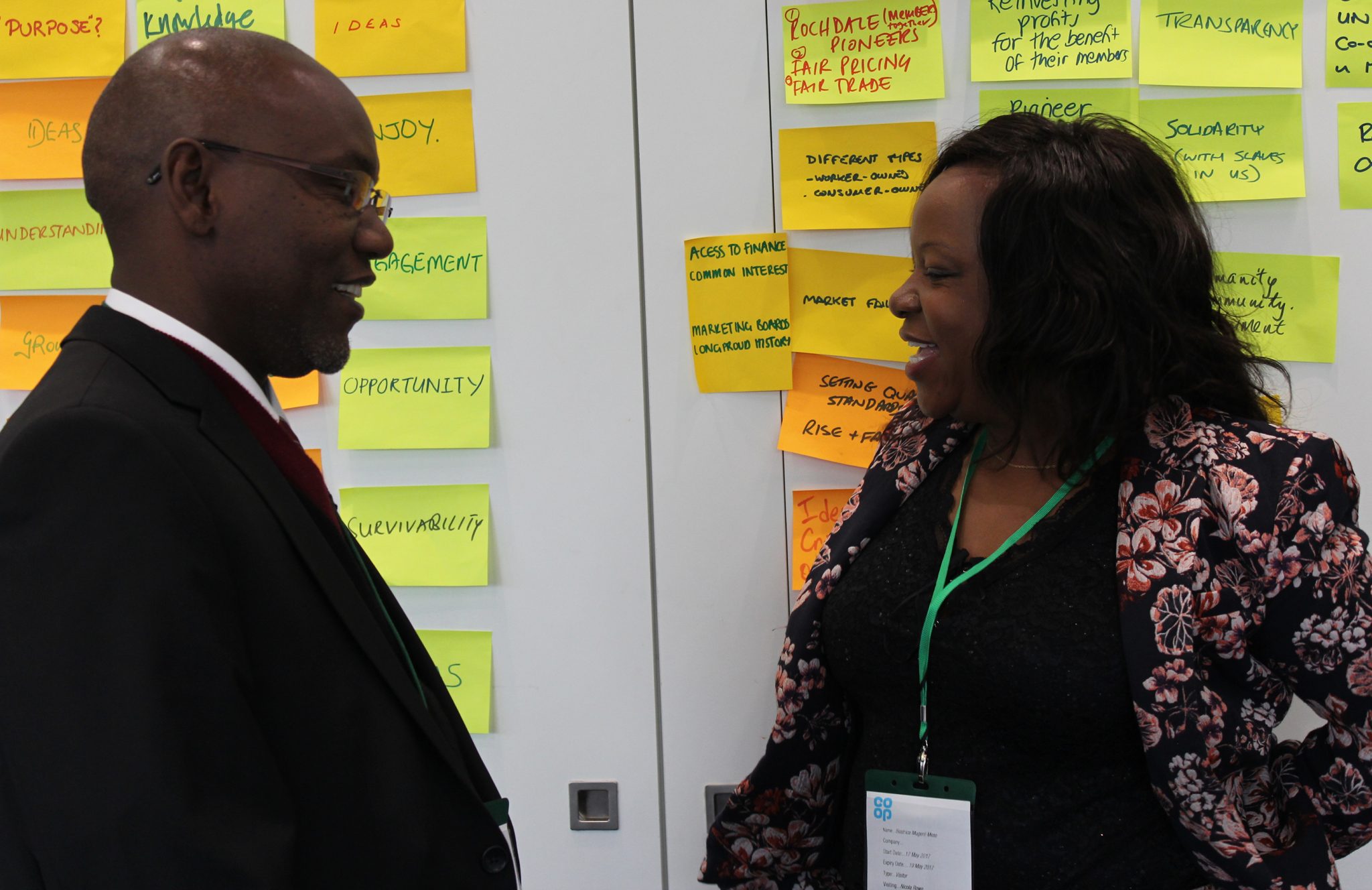The Co-operative College offers unique access to a wealth of information and research that can be used to develop learning resources – from archive materials detailing co-operative heritage to current case studies from co-ops in the UK and around the world.
The College runs a wide range of workshops and events at its base in Manchester, but there is growing demand for webinars and other forms of e-learning. And, as more and more organisations take on the delivery of training themselves, the College is increasingly working with co-ops to create customised development programmes and training resources.
Angela Colebrook, the College’s learning and development manager, has been in the post for eight years and previously spent 10 years as an associate freelance delivering member and director training.
“Training was always important,” she says. “But, with high-profile cases around governance in recent years, having directors and members properly trained has become even more essential. There is also far more interest than there was 20 years ago in courses around member engagement, because societies now realise the benefits you can get by encouraging members to be active, work together effectively and fulfil roles and responsibilities.”

The range of courses on offer runs the standard business school gamut from governance to finance, behavioural skills and conflict resolution. But the added ingredient is courses specifically customised to the co-op movement – from its history to different models and co-operative leadership and values. There are also induction courses for worker co-operatives tailored to organisations with new recruits who need to learn more about co-ops, as well as refresher courses for existing staff.
The College’s board skills audit process – delivered by an approved Co-operative College auditor – has been used by consumer societies and social enterprises since early 2003 as a way of helping them identify skills gaps and decide what to do about filling them.
One of the biggest growth areas for the College is in e-learning.
“It is really starting to take off now,” says Ms Colebrook. “We did a few pilots which were really successful and we are now doing a series of courses around topics such as effective chairing, giving people the confidence to speak persuasively, and presenting at a meeting. We are having a big push in May and are currently revising our list of courses, with topics such as effective governance, roles and responsibilities and measuring co-op performance indicators, as well as introductory courses for colleagues, members and directors.”
Training programmes from the College can be ‘off the shelf’ or customised for particular organisations.
“There are two key ways we put courses together,” Ms Colebrook explains. “We identify a need – maybe a change in legislation or another topic of interest – and design a course around that as part of our open programme. We run courses and workshops on specific dates in Manchester.
“Co-ops can also come to us and say ‘we have a need for a particular course’. We have a regular training programme with the Co-op Group and we are currently talking to an organisation that supports young people in Manchester. They asked us to put together a course in persuasive speaking so we are designing something to meet that particular need. We can also signpost to other organisations with specific expertise.”
One of the most innovative developments in recent years has been more accredited training, working with organisations such as the Chartered Management Institute. More options with the CMI are set to be delivered this autumn. The College also has a partnership with St Mary’s University in Canada delivering an executive education course for senior managers, CEOs and board members, built around the movement’s history and exploring how modern co-ops fit within the ‘social solidarity economy’.
“I absolutely love my job, no two days are the same,” adds Ms Colebrook. “I love working with co-ops and helping them to support learners, knowing they have gone away at the end of the day feeling more confident. It’s also about how we embed our values and principles in everything we do and the unique co-op difference we have to offer.”

